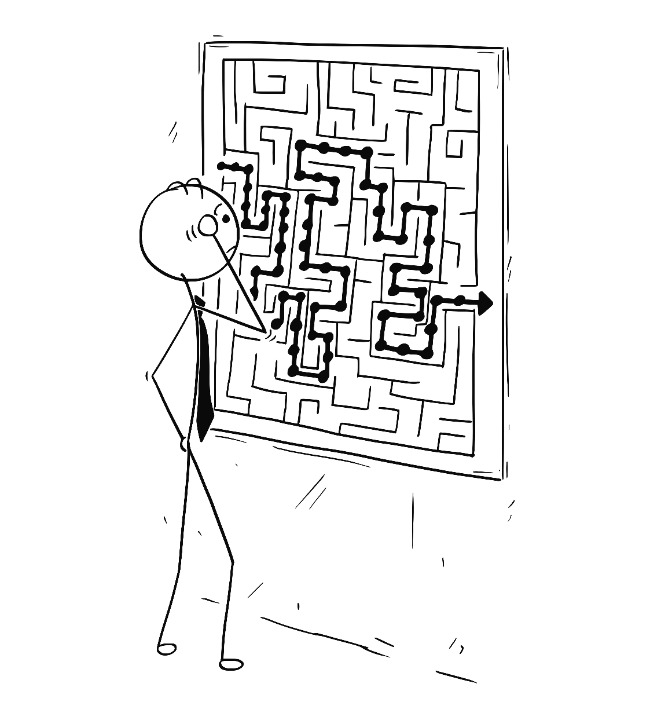I found that Julie Fast offered a number of practical tips for dealing with motivation and low energy; this post highlights four.
Julie Fast Offers Practical Tips on Perseverance
In “Get It Done When You’re Depressed,” Julie Fast offers 50 strategies for keeping your life on track. Between the vicissitudes of the entrepreneurial roller coaster and an increasing number of layoffs in Silicon Valley, I thought I would blog about persevering. Another good book on the topic is Steven Pressfield‘s “The War of Art”
Don’t Wait Until You Want to Do Something
After years of waiting for the elusive good feeling that comes with wanting to do something, I finally accepted the fact that I’ve never wanted to do certain things when I’m depressed and I never will. So I try to do them anyway.
I focus on the outcome instead of how I feel when I start.
I ask myself, How will I feel when I go to bed if I don’t do something?
Start, start, start. The motivation often shows up.
This is a good way to reframe the situation when you are feeling stuck: and look at the near-term consequences of leaving a task undone. Sometimes it’s minor, and sometimes you need a day off–or a morning or afternoon off–but sometimes you have to get started or do a “good enough” job given the time you have and other priorities.
Wait Until You Finish Your Work Before You Judge It
“Ignore your internal critic until the end of a project. [..] Of course, sometimes your work might not be your best, and you might realize this in the middle of a project. In this situation your judgement is usually backed up by facts, which means you can make changes and keep going.
It can be hard to be realistic about work in progress. In “Chalk Talk 1-2-4-1” I suggested breaking a project or an effort into four phases:
- (1/8): The first phase, which is about an eighth of the work, is a scoping process.
- (1/4): You then spend about a quarter of the budget to address the hard problems you’ve identified.
- (1/2): If it looks feasible, then you spend about half of your time working on the details.
- (1/8): Preserve time at the end to do polish steps so that what you present has a finished look–there should be no simple mistakes or obvious errors that would cause people to question the fundamental project.
I think it’s worth soliciting feedback and making your own assessment at each phase. Where things can get challenging is phase 3 which is working the details. Here is where you have to push on through.
Structure Your Day
“Structure creates calmness. Knowing you have to be somewhere or do something at a certain time helps you get things done.”
Julie Fast in”Get It Done When You’re Depressed“
A plan for the day always makes you more effective. It should take into account your normal energy pattern: when are you at your best and when you should schedule less important work that does not require creativity or critical thinking.
Set Time Limits
“Use a timer or cell phone alarm to set a time limit for a specific task and then work on it until the timer goes off.
Keep track of similar tasks so that you set more realistic times for when you need to start to finish on time.”
Julie Fast in”Get It Done When You’re Depressed“
The advice to “set time limits” has two aspects. The first is the Pomodoro technique (also called “time boxing”) which is helpful for getting started on a task you have been putting off. The second is an ongoing calibration of your estimates for tasks versus the effort they actually took.
Related Blog Posts
- Getting Work Done: Leveraging Calendars, Task Lists, and Project Plans
- Q: Help I Feel Stuck in Low Gear
- Use the Cult of Done Manifesto to Avoid Procrastination and Perfectionism
- Getting Unstuck From Perfectionism
- Labor Day 2014: Knowledge Work Productivity
- PATCA Roundtable on Time Management includes a long list of my suggestions from the event.
- Eleven Tips From Lynnea Hagen on Getting Unstuck
- Tony Schwartz: Notice the Good, Cultivate Good Habits, Slow Down, and Do the Right Thing Schwartz suggests it’s more important to manage your energy than your time, among other useful insights.
- Focus Needs Buffers and Free Time Covers “buffer days” concept.
- More Unsolicited Advice From David Cain
- Brad Pierce: Preserve Context in Writing to Manage Interruptions
- Please Be Healthy : I sent the following e-mail after a series of conversations and e-mail exchanges with a struggling founder.
Maze Image licensed from https://www.123rf.com/profile_zdeneksasek

